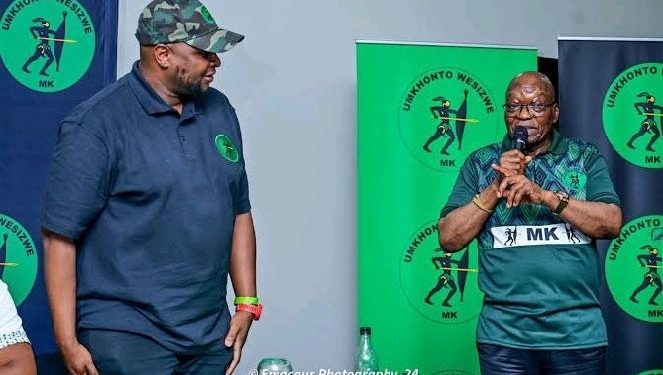In a striking address at the recent Africa Day lecture, MK Party Secretary-General Floyd Shivambu outlined a bold new direction for the party, declaring that if black-led political parties cannot unite, the MK Party will focus on consolidating voter power instead.
Known for his unapologetic rhetoric, Shivambu used the platform to reinforce the MK Party’s longstanding call for black political solidarity—but with a critical twist. This time, the emphasis was not on backroom coalition deals or elite negotiations but on mobilizing the masses, whom he argued have been sidelined in favor of narrow party interests.
Expressing frustration over what he called “wasted opportunities” by progressive African parties to form a united front, Shivambu stressed the urgency of black unity while signaling a strategic pivot. Rather than waiting for alignment among political leaders, he said, the MK Party would take its mission directly to the people—the true source of political power.
The message resonated strongly with supporters in attendance, many of whom have grown disillusioned with political elites they believe prioritize power struggles over the needs of the working class. Shivambu’s speech suggested a populist shift, framing the MK Party as a movement channeling grassroots frustrations—rooted in historical grievances, economic inequality, and demands for justice—into a new form of political mobilization.
Analysts suggest this approach could energize the MK Party’s base, particularly among disaffected youth and informal sector workers who feel mainstream parties have failed to deliver meaningful change. By bypassing traditional political gatekeepers, the party may be betting on a bottom-up strategy to reshape South Africa’s political landscape ahead of the 2026 elections.
Shivambu’s rhetoric signals a recalibration—from top-down coalition talks to mass voter consolidation. His message was clear: If the political establishment refuses to unite, the MK Party will build its power “one voter at a time,” positioning itself as the voice of those left behind by elite compromises. Whether this strategy translates into electoral gains remains to be seen, but it underscores the growing demand for a politics that speaks directly to the people’s struggles.






















